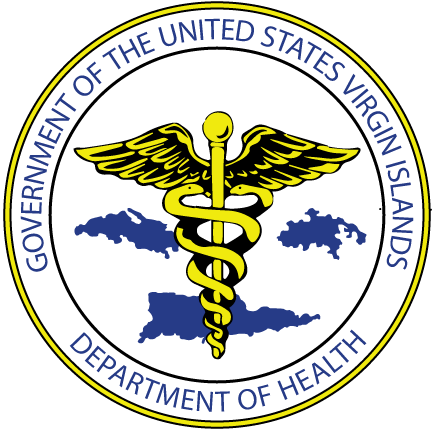Mosquito Surveillance
Adult Mosquito Surveillance
The VIDOH Vector Control Program (VCP) has been conducting routine mosquito surveillance since early 2017 to learn more about the Aedes aegypti mosquito that can spread dengue, Zika, and chikungunya. Surveillance is collecting these mosquitoes with traps around the territory. The amount of these mosquitoes collected over time shows us how the mosquito populations change by season and if control is working. This important information then allows VIDOH VCP personnel to make the best decisions in trying to control these mosquitoes should an outbreak or natural disaster occur.
Larval Mosquito Survey
The VIDOH Vector Control Program worked with Western Carolina University in 2019 to collect mosquito larvae throughout the territory and learn what mosquito species live in USVI. The last time this was done was in the 1960s, so it was very important to update this information. Through this larval mosquito survey, we have found that are about 18 species of mosquito in USVI. We even found two mosquito species that have never been found in USVI before, and one new species previously unknown to scientists! Luckily, these newly found mosquito species are not known to spread diseases in the USVI.
For pictures and videos about what we’ve found, check out this Story Map. Stay tuned for additional information and publications on what we’ve learned through this survey!
Mosquito Control Projects
Backpack Spraying
During the Zika outbreak in 2016-2017, backpack spraying was used to help control Aedes aegypti mosquitoes around the territory. It was done by trained technicians who sprayed pesticides around homes, businesses, schools, and hospitals where permission was granted. The VIDOH Vector Control Program was not formed until the end of 2016, so a vector control company was contracted to do the backpack spraying in response to the Zika outbreak in 2016-2017.
In2Care® Mosquito Traps
The VIDOH Vector Control Program used the In2Care® Mosquito Trap in a USVI neighborhood in 2019 to see if it can control Aedes aegypti mosquitoes in our local environment. The results are being analyzed and will be posted when complete. Stay tuned for additional information!
The St. Croix Mosquito Project
This project has been discontinued as initially planned due to Covid-19. For more information about the project and why it was discontinued, follow the provided links.
Cisterns and Mosquitoes
In 2019, the VIDOH together with Western Carolina University and the Centers for Disease Control and Prevention (CDC) checked cisterns throughout the territory for mosquitoes and tested cistern water for germs that can cause disease. The survey found that mosquitoes were present in more than 4 out of 10 cisterns checked, and most of those mosquitoes were the Aedes aegypti mosquito that can spread dengue, Zika, and chikungunya.
To prevent mosquitoes from getting into your cistern, make sure the intake spouts and overflow spouts are screened with fine mesh with holes as small as window screens, and that the cistern cover is tight enough so that mosquitoes can’t get in.
Find out more about the 2019 cistern survey by visiting the Virgin Islands Department of Health Epidemiology page.
In 2021, VIDOH is working with the Puerto Rico Vector Control Unit (PRVCU) on the Mosquitoes in Cisterns Survey to learn if cisterns are an important breeding site for the Aedes aegypti mosquito that can spread dengue, Zika, and chikungunya. This survey will expand on what we learned from the 2019 cistern survey. Stay tuned for additional information and publications on what we learn through this Mosquitoes in Cisterns Survey!
